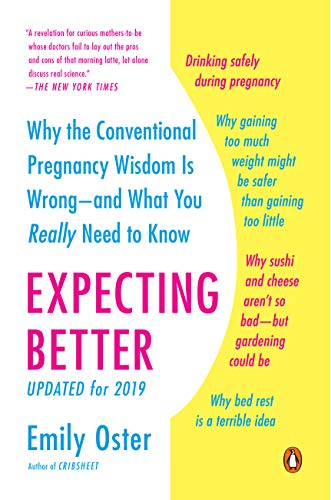

This article is an excerpt from the Shortform summary of "Expecting Better" by Emily Oster. Shortform has the world's best summaries of books you should be reading.
Like this article? Sign up for a free trial here .
If you’re overweight, what are the issues with getting pregnant? How can it cause issues with complications in pregnancy, and in your baby’s future outcome? Learn more here.
Let’s start with a definition of overweight: 70% of the US is overweight (BMI > 25) and 35% are obese (BMI > 30).
Obese women are less likely to get pregnant and more likely to have pregnancy complications and infant complications. Here are a few graphs illustrating the difference.
The first graph shows the chances of complications, including pre-eclampsia, gestational diabetes, preterm delivery, labor induction, and C-section. Chances comparing normal weight vs obese mothers are shown:
As you can see, there’s a big difference in the chances of complications between women of normal weight and obese women.
What happens when the baby is born? Here’s another chart, showing outcomes of babies to women of normal weight and obese women:
(Shoulder dystocia is an emergency occurring during labor in which the baby’s shoulder gets stuck and can’t easily come out behind the pubic bone.)
Babies born to obese women have much higher risks of shoulder dystocia, being large for gestational age, and for a poor APGAR score on birth.
Overweight women who are neither obese nor of normal weight have risk profiles somewhere in between.
———End of Preview———

Like what you just read? Read the rest of the world's best summary of "Expecting Better" at Shortform . Learn the book's critical concepts in 20 minutes or less .
Here's what you'll find in our full Expecting Better summary :
- Why much parenting advice you hear is confusing or nonsense
- The most reliable way to conceive successfully
- How much alcohol research shows you can drink safely while pregnant (it's more than zero)
- The best foods to eat, and what foods you really should avoid






